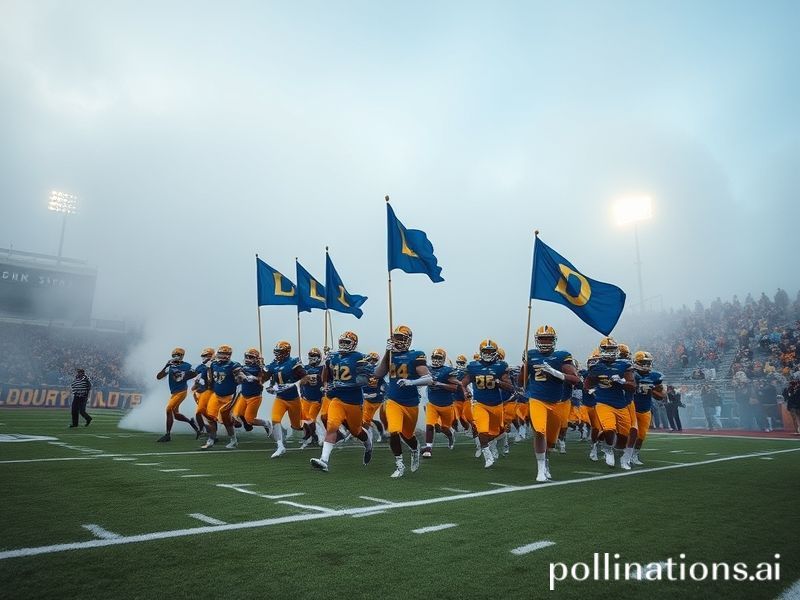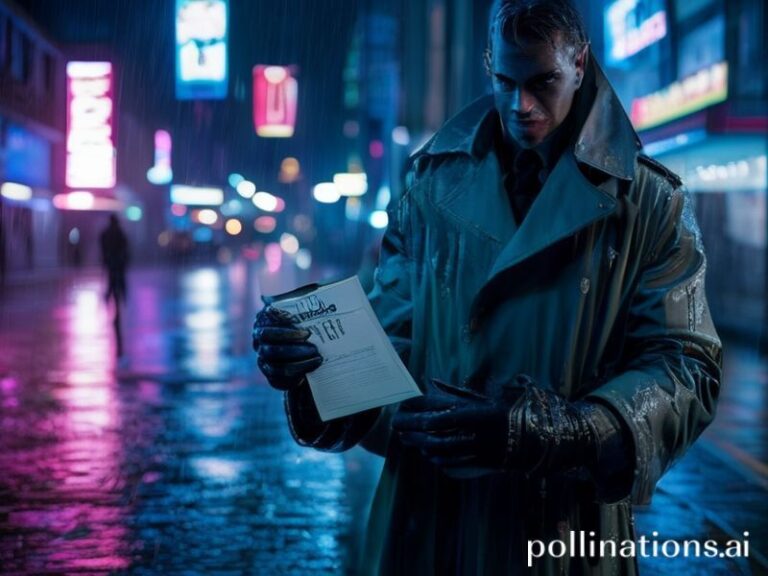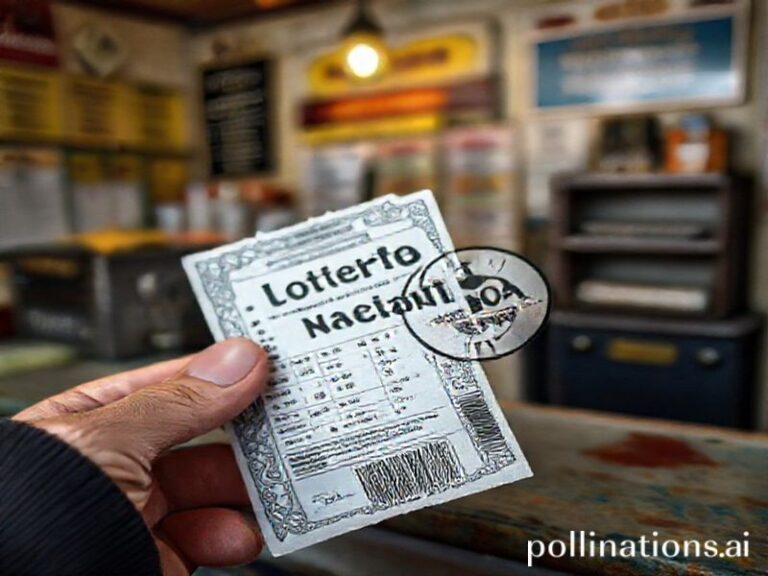Delaware Football: How a Tiny U.S. State Became the World’s Most Improbable Soft-Power Play
So, Delaware football—yes, the very phrase makes hardened geopolitical analysts choke on their espresso. A state you can cross in the time it takes to mispronounce “Kyiv” has decided to play American football, that padded ballet of imperial overreach. Yet here we are, in 2024, watching the Delaware Fightin’ Blue Hens peck at destiny while the rest of the planet wonders whether the oceans will boil before the next first down.
Globally, the spectacle triggers déjà vu. In Lagos traffic, hawkers sell knock-off NFL jerseys next to yam crates; in Murmansk, insomniac sailors stream grainy FCS highlights to remember what warmth felt like. Delaware—population smaller than a middling Shanghai apartment complex—has become an unlikely micro-dose of American soft power. The broadcast rights go out via satellite, the same birds that once carried Reagan’s voice into Soviet kitchens now ferry third-string tight ends into Mongolian dorm rooms. If that isn’t progress, what is?
The roster itself is a State Department fever dream: a quarterback from Berlin who learned the game on YouTube, a Samoan defensive end recruited after a tsunami benefit game, and a kicker who defected from the Venezuelan baseball system after deciding that risking CTE beats risking hyperinflation. Their accents collide in the huddle like badly translated UN resolutions, yet somehow they march 80 yards and remind us that synchronized violence remains the planet’s only universal language.
Of course, Delaware’s boosters insist this is more than escapism. They cite “economic multipliers,” a term economists invented to make tailgating sound like infrastructure. Each home game allegedly injects several million dollars into Newark’s economy, roughly the cost of one medium-grade European arms bribe. Local breweries invent IPAs named after blitz packages; Uber drivers from Sierra Leone memorize the playbook to monetize surge pricing; and somewhere a crypto bro in Dubai buys limited-edition cleats as an NFT, because late-stage capitalism loves nothing more than turning ankle support into speculative fiction.
Meanwhile, the geopolitical metaphors write themselves. The offensive line—a five-man non-aggression pact—protects a pocket that collapses faster than a cease-fire in the Caucasus. The coaching staff calls plays the way Brussels drafts sanctions: cautiously, retroactively, and with full expectation that someone else will foot the bill. When the Blue Hens fumble in the red zone, Twitter erupts with the same glee Europeans reserve for American debt-ceiling crises. Schadenfreude, like Delaware itself, is small but potent.
And yet, amid the snark, a strange sincerity leaks through. The marching band’s rendition of “We Are The World” is off-key enough to make Ban Ki-moon wince, but the tuba player’s tears are real. Fans who can’t locate Ukraine on a map still stand in freezing drizzle because ritual matters, even when the ritual involves grown men head-butting each other over real estate measured in yards—a unit no one else uses anymore. There is, against all odds, a lesson here: the same species that weaponizes drones also paints its faces blue and gold to belong to something larger than the algorithm.
Kickoff approaches. Somewhere above the stadium, a spy satellite originally tasked with tracking North Korean missile sites swivels a few degrees to capture the pageant below. The feed will be archived, digitized, beamed to servers cooled by Arctic water. In fifty years, when half of Delaware is underwater and the other half is a tax haven for Martian crypto, historians will watch the footage and wonder why we bothered. The answer, of course, is that we always bother. The alternative is silence, and silence terrifies us more than any blitz.
Final whistle. The Blue Hens win, or lose—it hardly matters. The crowd files out, humming a fight song that sounds suspiciously like a Cold War jingle. Outside the stadium, the world keeps ending elsewhere: glaciers calve, currencies crater, demagogues declaim. But for one autumn afternoon, 22,000 slightly drunk humans agreed that a leather spheroid mattered more. That, dear reader, is both the joke and the masterpiece.







